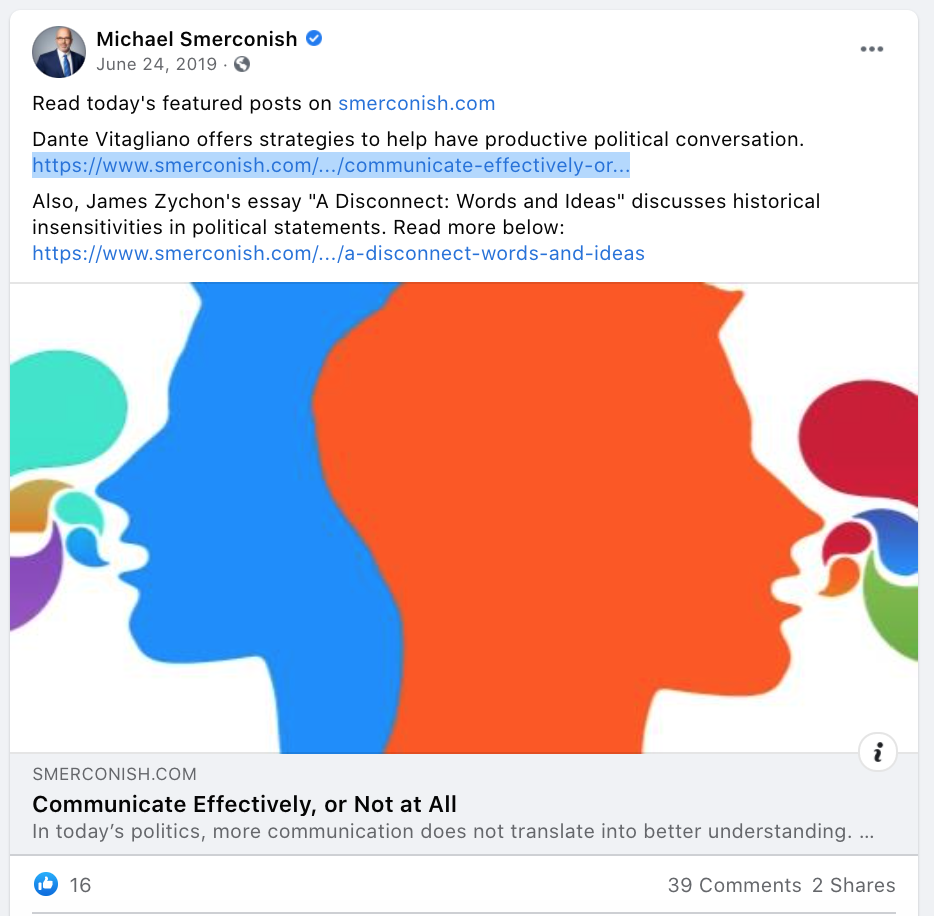
In today’s politics, more communication does not translate into better understanding.
Americans today enjoy unprecedented access to information and face few barriers to participate in political discourse, providing engagement opportunity to just about anyone. While this is an objectively positive development for society, conversations about politics have become more caustic, and our exchanges have become overheated.
It’s about time we take ownership over our contribution to political culture and examine — or reexamine — our personal interactions in the public sphere. Our arguments are endless and ugly because we are doing it wrong. If we want to truly change our public discourse and create a more productive political environment, we have to change the way we communicate with one another first.
Accept disagreement as a necessary condition.
The word itself, “discourse” — in this context — implies debate. This is so obvious that it is difficult to articulate the profound importance of this concept. When we use the term “public discourse,” we are referring to an exchange of ideas. Why then do we expect agreement and consensus in political discussion? Disagreement is the natural state of discourse. When groups of people who all agree with one another get together to communicate their ideas, we call that prayer, or a rally, or a demonstration, not discourse.
The mob doesn’t need more people.
To paraphrase author/entrepreneur Ryan Holliday, the outraged masses don’t need your help. Acknowledge the mob, if you must, but remember, mobs are fueled by passion, not calculated, reasoned consideration. There is a difference between making a valuable contribution to the conversation and simply fighting fire with gasoline.
Have some humility.
No one is right all the time, and indeed some of the smartest and people with decades of first-hand experience are often spectacularly wrong. As global health researcher Hans Rosling points out in Factfulness, there are many perfectly understandable reasons why human judgment is often misguided.
On issues of great national and international import, to say that most people do not have all the facts is an understatement. And yet, we as a society pressure everyone to have an opinion on everything. So, naturally, we employ some convenient heuristics to justify otherwise ill-informed positions.
Stop making people feel bad when they don’t care about an issue that you care about, and next time someone passes judgment on you for staying above the fray, tell them that you need to do more research.
Argue better to argue less.
We all know that one person who loves arguing. The perpetual devil’s advocate who cannot let anyone assert anything without calling it into question. Despite their affinity disputation, these people (and most people) are often horrible at arguing persuasively. Instead they “win” arguments by brute force rather than sound logic.
Do yourself a favor and get familiar with the most popularly employed argumentative fallacies. This really isn’t as painful or egg-headed as it sounds. The illustrated Book of Bad Arguments, for example, is both fun and helpful. By honing your debate skills, you will better prepared to recognize flawed reasoning in your own thinking, as well as in others, including politicians and the media.
Don’t pass the buck.
Of course, all of this is easier said than done. Getting people to recognize the fallacies in their own thinking, thereby changing the nature of public discourse, is a tall task. But if we hope to facilitate better conversations and encourage productive policy debates, we cannot allow the difficulty of this task to be an excuse. No one can do it for us. Culture cannot be legislated.
True social change comes when we — as individuals and communities — are forced to confront the reality that our behavior and attitudes have real meaningful impacts on society at large. Start at home, lead by example, and resist the urge to get sucked back into your own preferred echo chamber. No one can do it for us. It is our collective responsibility to reject the adversarial status quo.
